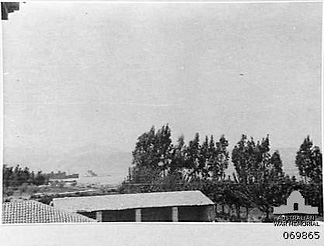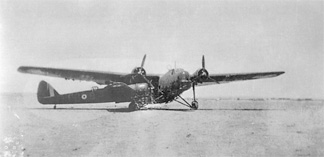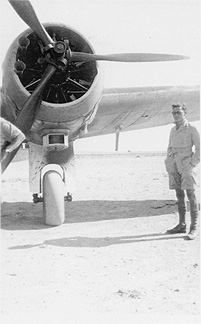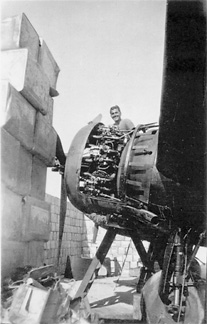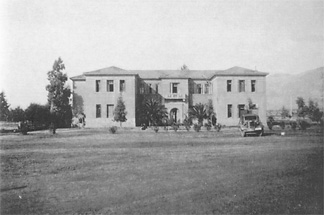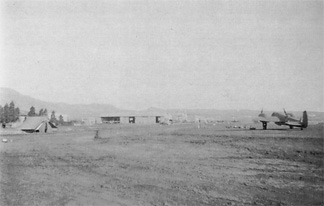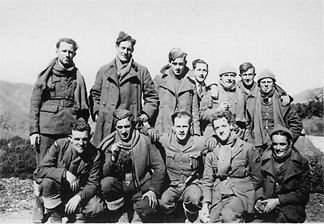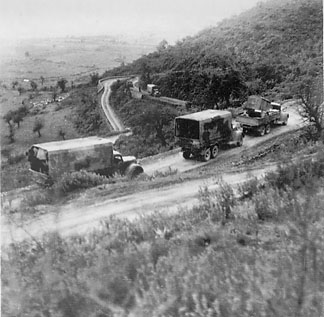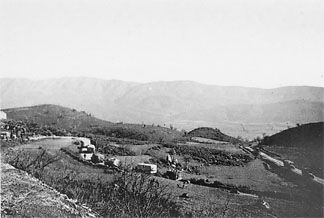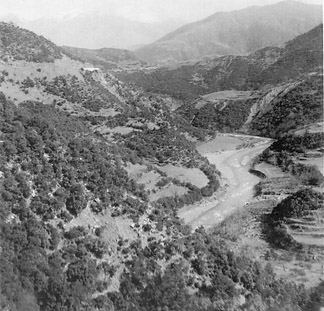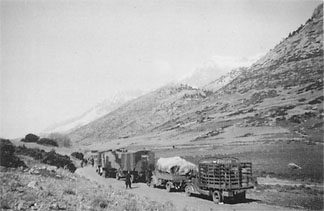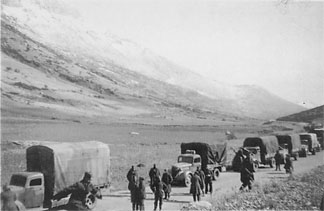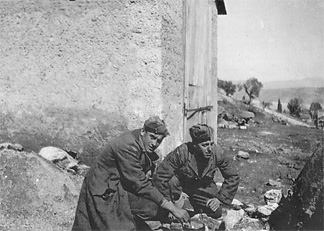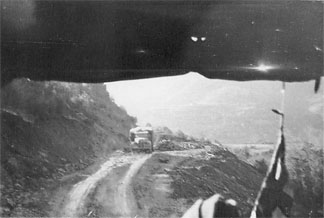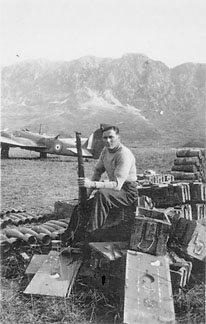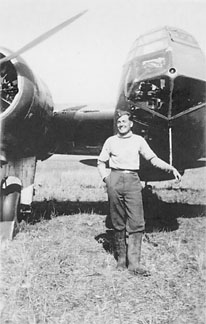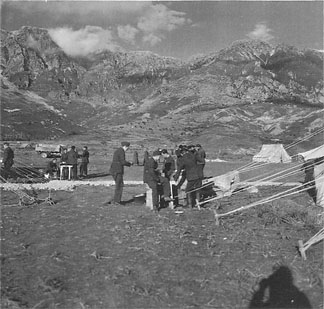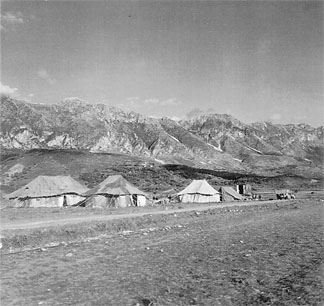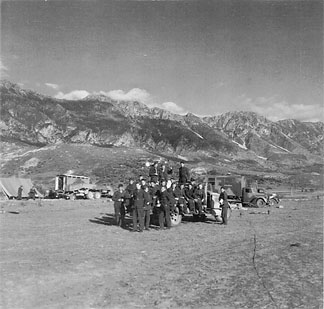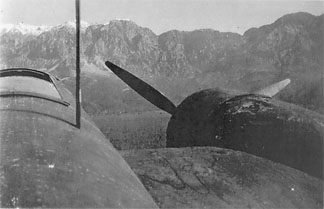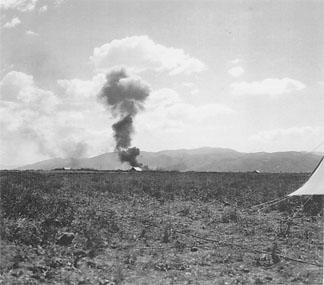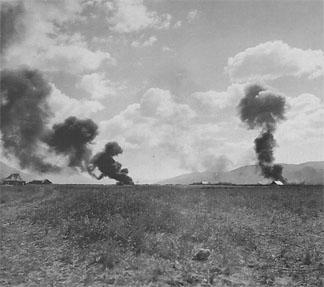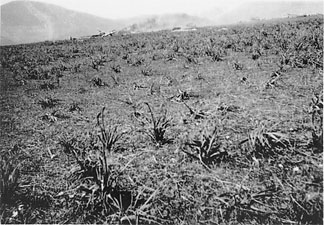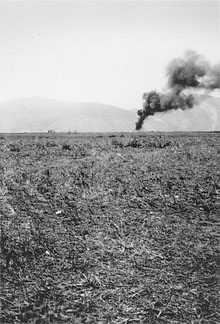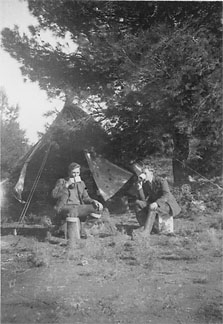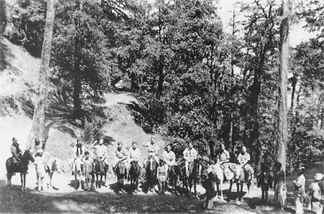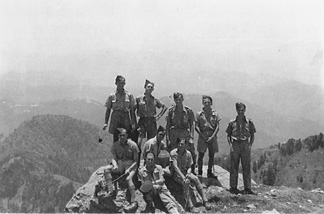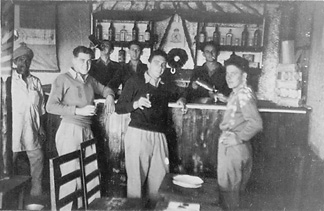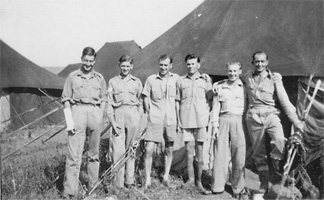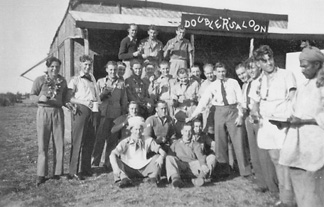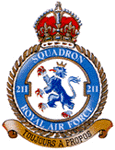 |
 |
|||||||||||||||||||||||||||||||||||||||
|
Ronald John "Mick" Dudman 624563 RAF A Fitter II/Engine—skilled groundcrew of the pre-war RAF—Ron Dudman’s service number falls in the large block from 610000 to 654720, issued from March 1938 to civilian Other Ranks entrants to the RAF in the last year or so of peace ending in August 1939. Len Abbs had enlisted in July 1938, his service number being 615342. When Jim Fryatt enlisted in January 1939, his number was 631210. On that basis, it seems that AC RJS Dudman had joined the RAF between August and December 1938. One of the Airmen to keep a diary of his war-time experiences, in early January 1941 Ron (otherwise Mick) Dudman was in Cairo, having recently come to Egypt with a draft of personnel from the UK. There he learned that he was to be posted to 211 Squadron, by then in Greece and due to gather more groundcrew. At dusk on 20 January, Dudman boarded the Ulster Prince at Alexandria, one of a draft of 40-odd groundcrew. Sailing in Convoy AN13 bound for Piraeus, they arrived safely on the afternoon of 22 January and joined 211 Squadron at Menidi (Tatoi) the next day. Ron was to remain with the Squadron in Greece, the withdrawal through Crete, to Palestine, and on to the Sudan and the training period at Wadi Gazouza in late 1941.
A modern 3,700 ton passenger motorship of 1930 build, Ulster Prince had had a very active and lucky war up to 1941. On 24 April she was taking part in the evacuation of service personnel from Greece when her luck ran out, running aground on arrival off Nauplion to board troops. Royal Navy efforts to claw her off were unsuccessful and she was destroyed by the Luftwaffe the next day. In the AWM image, one of several on the day, she lies left of frame beyond the smaller foreshore trees, bomb-bursts from an attacking Ju 87 Stuka close to her bows. When the Squadron was posted to the Far East in January 1942, Dudman was one of the large groundcrew party aboard HMT Yoma, sailing for Oosthaven and Batavia in the Netherlands East Indies. By one of the tricks of memory that make for interesting puzzles to untangle, in So Long Singapore and Blenheim Over the Balkans he confidently remembered the voyage as aboard Cap St Jacques. In that he was mistaken—she was sailing between Bombay and Singapore at the time. Len Abbs, however, had taken a photograph of 211 Squadron men aboard Cap St Jacques: in June 1941, as they journeyed down the Red Sea to Port Sudan, en route for duty at Wadi Gazouza. In March 1942, Mick Dudman was with the last party of 211s to leave the East Indies theatre, withdrawing via Poerwokerto to Tjilatjap and evacuation aboard the Tung Song. With his own strong collection of photographs, Ron kindly went to a lot of trouble to get colour laser-copier prints made, which at the time (2001) was quite an advance. It turned out that he had taken many of the photographs that turn up in other 211 men’s collections, Jim Fryatt for example. They all shared prints much as they might have swapped cigarette cards as young civvies. The shots from his time in the Middle East and the Far East are of very great interest. Here is a selection. A few of them have appeared in other publications. Ron’s own brief captions are shown thus.
Two finger-prints had marked the original negative or print and were visible in the print copy. One of these partly obscures the nose of the Blenheim. The 211 Squadron identity UQ ‘B’ is faintly visible in the print copy but the serial no is not. Unremarked in the Squadron record, it did rate a mention in the RAF Narrative, dated to to 12 June 1940. Geoff Grierson and Mike Sainsbury also had good close-ups of this event, as did Len Cooper in Dunnet’s Blenheim Over the Balkans (p257). The aircraft is noted elsewhere as L1481 (Thomas) and also as L1487 (Warner, and Gunby and Temple).
The airman on the right wears tinted and shielded glasses, his companion far left almost out of shot. No rank or trade badges to be seen, on either man.
A graphic illustration of the difficulties that ground crews learnt to live with in the field. 4-gallon petrol tins and a step ladder make a blast-protected servicing bay at Mersah Matruh before the balloon went up. The servicing bays at El Daba were of the same style. Is that Sgt C Cooke grinning madly above the top end of a Mercury? Greece 1941
The Headquarters at Tatoi airfield in 1941, in hazy afternoon light. No personnel visible. An unidentified vehicle stands at right. The aerodrome itself lay some three miles North East of Menidi railway station, with the station at Tatoi immediately to the East. The Summer palace of HM King George of Greece, also known as Tatoi, lay some miles to the North among the wooded slopes of Mt Parnes. This proximity occasioned the war-time change of name for the aerodrome, to Menidi. An odd gesture, well described in Wings Over Olympus. The boys referred to it determinedly as either Menidi, Menidi (Tatoi), Tatoi, or even Tatoi (Menidi)!
The airfield at Menidi (Tatoi). On the far left, tented accommodation with a hint of what may be the HQ building immediately to the left rear. The considerable hangarage extends from left of centre into the background, with a Blenheim at the doors of the nearest hangar. On the far right, a Blenheim I is apparently about to be bombed-up, with the bomb-bay doors open and an array of equipment under and near the port wing. By convoy to Paramythia
Possibly Sgt Cooke, far right front.
The gorge of the Aspropotamus, the White River.
Overlooked by the snowy upper slopes of a high mountain valley, the boys “ease springs”. Convoy speeds were low and breaks essential.
Photographs of the convoy, some of them duplicates, were kept by a number of the boys, including my father, Jim Fryatt and Len Cooper. Paramythia, March and April 1941
Armed to the teeth at Paramythia. Cooke sits surrounded by empty ordinance crates, tailfin canisters, and ranks of 20lb and 40lb bombs, fins clipped on. The Blenheim appears to have been repainted in European scheme, and is now without even the Squadron UQ code, let alone its own letter. There is another Blenheim in the far distance to the right of Cooke’s left shoulder. “Dispersals” being taken seriously for the aircraft.
Same day, same place, and a much more cheery photo.
These larger square format photographs were beautifully filtered and exposed, and well printed.
L8531 has blown up, having been set on fire after the Italian attack. Smoke from the second burning aircraft is drifting across from the left. See also HF Squire, C Hansford and the notes of my father CFR Clark on the 22 March and other RA raids on Paramythia.
Another aircraft destroyed. Reports of the total damage vary. Perhaps as many as 8 aircraft in varying states of serviceability from several units.
Ron may have made a slip of the pen with these two. Possibly the third raid of 26 March, or that on 15 April. Either way, more damage: a u/s Gladiator, probably.
Off duty, and....time for a cuppa! The airman on the left appears to be an LAC. JKRV at Paramythia—Easter Monday 1941
This JKRV Dornier Do 17 of 209 Eskadrila, serial 3363, arrived early in the morning. HM Peter, King of the Yugoslavs, arrived shortly afterwards with his entourage in Savoia Marchetti SM.79K ‘White 12’ of 7 Bomber Puk. See also CFR Clark’s account of this occasion.
Looking over the pilot’s seat, with the remarkable view forward and down through the extensive glazing.
A 211 Squadron Coporal and LAC refuel the JKRV aircraft by hand from a 44 gallon drum, their be-ribboned Flight Sergeant impassively watchful. By this date, much equipment had been sent back to Agrinion following attacks on the airfield. One look is worth a thousand words.
Savoia Marchetti S79K ‘White 12’ of 7 Puk JKRV, Paramythia, 14 April 1941
HM Peter King of the Yugoslavs is the figure fourth from the left facing the camera, bareheaded in sunnies and tweed jacket.
Peter is the tweed-jacketed hatless figure, leading on the left. The young King (he was aged 17 at this date) spent much of the remainder of the war in England. While in the Middle East he made vigorous representations for the immediate operational use of the JKRV personnel and aircraft that made it to Egypt, and was bitterly disappointed that his proposal was not immediately accepted. On the JKRV movements through Paramythia, see also CFR Clark, EL Cooper, WP Griffin, HF “Doc” Squire. The Far East: India, 1942
By Christmas 1942 things were starting to look up a little. At Jasaguda (modern Jharsuguda, in Eastern India), spirits were high enough to call on old traditions, in building their own little airmen’s pub and decorating it with mementoes of times past.
A large print of the 211 Squadron badge centrally prominent behind the Bar, and a Greek flag decorating the wall to the left.
RJ Dudman seated, in hat, front left. At this date, the Squadron was still disbanded. The Double R title may be a Rolls Royce pun on the Refuelling and Rearmament Party duties the ground trades were now up to. By late 1942 there were already a number of these units at work in India. Stand easy In later years, gout didn’t stop him tapping away at the typewriter keyboard a bit, corresponding with Ian Carter, James Dunnet, Adrian Fryatt and others. His 1941 diary entries contributed a chapter to James’ Blenheim Over the Balkans. RJ Dudman died peacefully on 27 January 2004. Rest easy, Ron. Sources Air Ministry Index to Airmen and Airwomen TNA AIR 78/48 RJ Dudman photograph collection copy via Adrian Fryatt
www.211squadron.org © D Clark & others 1998—2025 |
|||||||||||||||||||||||||||||||||||||||
